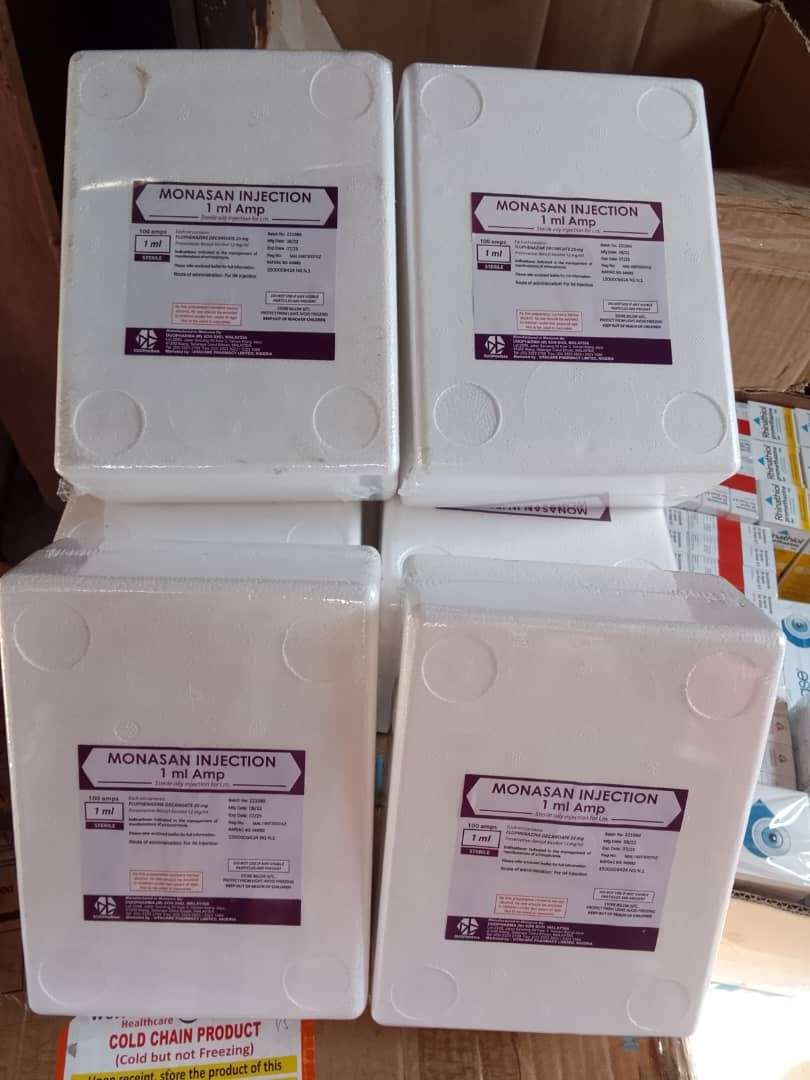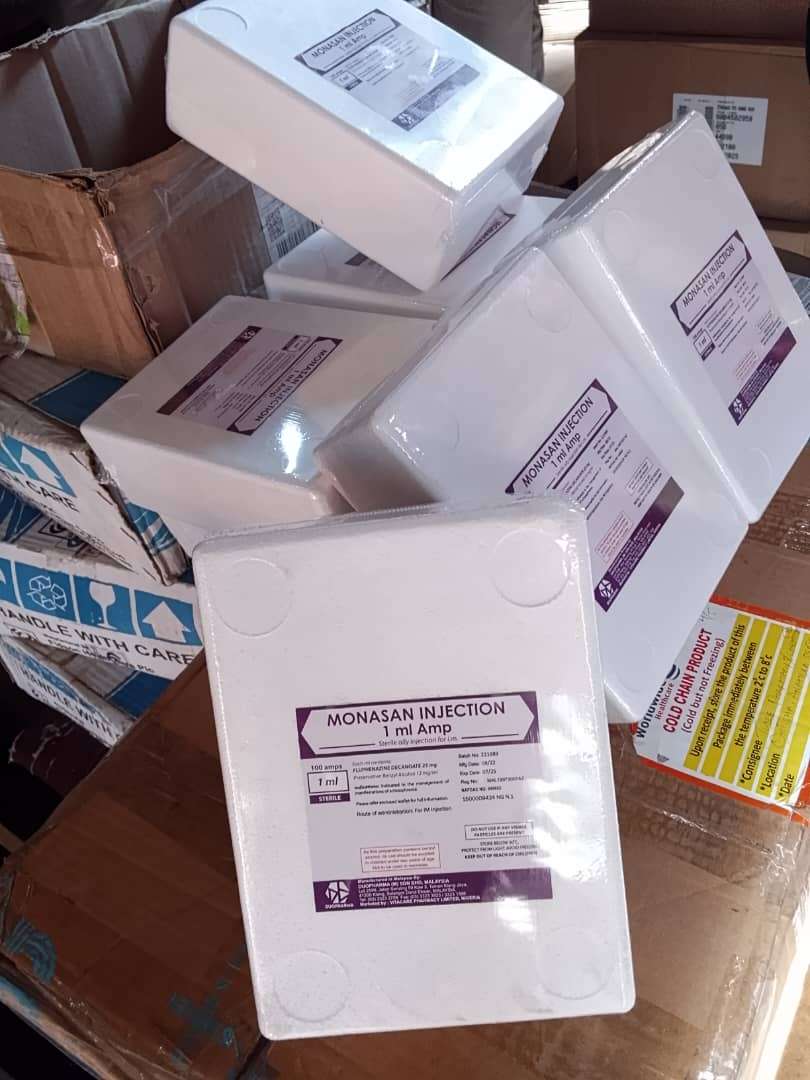uses of monasan injection
This medication is used to treat certain mental/mood disorders (such as schizophrenia). Fluphenazine decanoate is a long-acting form of fluphenazine. It may be used by people who have trouble remembering to take medication every day. Fluphenazine belongs to a class of drugs known as antipsychotics. It works by helping to restore the balance of certain natural substances in the brain.This medication is not recommended for use in children under 12 years of age.
How To Use
This medication is given by injection into a muscle (intramuscularly-IM) or beneath the skin (subcutaneously-subQ) by a nurse or doctor. This medication is usually injected every 4-6 weeks, or as directed by your doctor. If you are giving yourself this medication, learn how to prepare and inject this medication. If any of the information is unclear, consult your doctor or pharmacist.
This medication is usually pale yellow in color. If the liquid becomes any darker than pale yellow, is discolored in any other way, or if particles appear in the liquid, do not use the liquid.
Wash and dry your hands thoroughly before measuring and injecting the drug. Clean the injection site with rubbing alcohol. Avoid getting the medication on your skin because allergic reactions (contact dermatitis) may occur.
Learn how to store and discard needles and medical supplies safely. Never reuse syringes or needles. Consult your pharmacist for more details.
Use this medication regularly in order to get the most benefit from it. Dosage is based on your medical condition, past use of other drugs for your condition, and response to therapy. The dose should not be greater than 100 milligrams.
Inform your doctor if your condition does not improve or worsens.
Side Effects
Drowsiness, lethargy, dizziness, lightheadedness, nausea, loss of appetite, sweating, dry mouth, blurred vision, headache, constipation, and pain/redness at the injection site may occur. If any of these effects persist or worsen, notify your doctor or pharmacist promptly.
Dizziness and lightheadedness can increase the risk of falling. Get up slowly when rising from a sitting or lying position.
Remember that this medication has been prescribed because your doctor has judged that the benefit to you is greater than the risk of side effects. Many people using this medication do not have serious side effects.
Tell your doctor right away if you have any serious side effects, including:
feelings of restlessness
mask-like facial expression
greatly increased saliva
tremors
unusual mental/mood changes (such as depression, worsening of psychosis)
confusion
unusual dreams
frequent urination or difficulty urinating
vision problems
weight change
swelling of the feet/ankles
fainting
skin discoloration
butterfly-shaped facial rash
joint pain
seizures
In rare instances, this medication may increase your level of a certain hormone (prolactin). For females, this rare increase in prolactin may result in unwanted breast milk, missing/stopped menstrual periods, or difficulty becoming pregnant. For males, it may result in decreased sexual ability, inability to produce sperm, or enlarged breasts. If you develop any of these symptoms, tell your doctor right away.
Rarely, males may have a painful or prolonged erection lasting 4 or more hours. If this occurs, stop using this drug and get medical help right away, or permanent problems could occur.
Fluphenazine may rarely cause a condition known as tardive dyskinesia. In some cases, this condition may be permanent. Tell your doctor right away if you develop any unusual/uncontrolled movements (especially of the face, mouth, tongue, arms, or legs).
This medication may rarely cause a very serious condition called neuroleptic malignant syndrome (NMS). Get medical help right away if you have any of the following symptoms:
fever
muscle stiffness/pain/tenderness/weakness
severe tiredness
severe confusion
sweating
fast/irregular heartbeat
dark urine
signs of kidney problems (such as change in the amount of urine)

